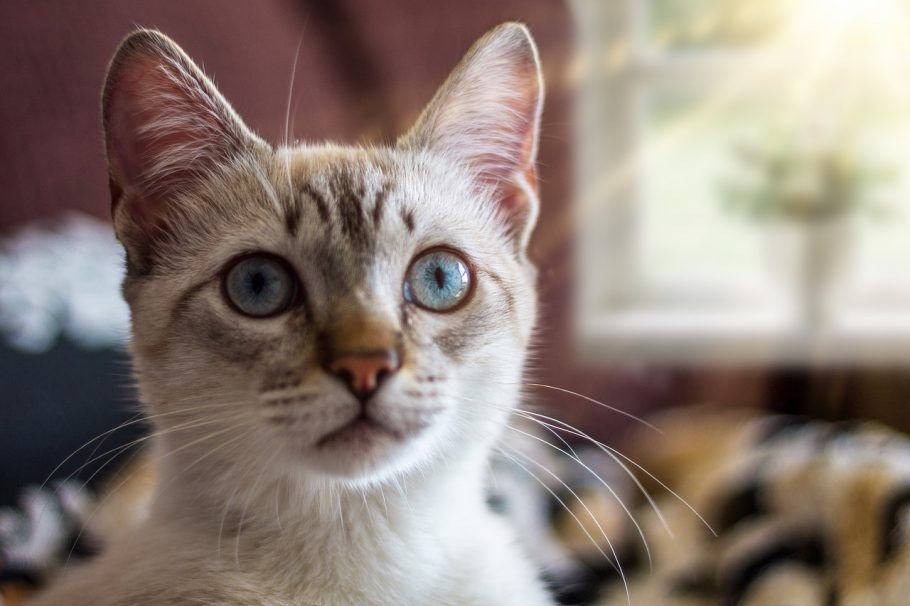Possums are the marsupial residents of North America. They are often confused with rodents due to their rat-like appearance, but they are not rodents at all. They are actually closer relatives to Kangaroos and Koalas. Possums are omnivorous and mostly feed on fruits, insects, and small animals. They are known for their adaptive behavior, which enables them to survive in various habitats. They are usually not aggressive, and they tend to avoid conflicts with humans and other animals.
However, possums can pose a potential threat to our feline friends in certain situations. They may carry diseases that can be harmful to cats, such as leptospirosis and toxoplasmosis. Additionally, physical encounters between possums and cats can result in scratches, bites, and even serious injuries. It is crucial to take preventive measures if you live in an area that has possums around.
Pet owners can secure their property by putting a fence around their yard or garden. They can also install motion-activated lights and sprinklers to deter possums from entering their property. Keeping your pets indoors is another way to protect them from potential conflicts with possums. Supervising your pet’s outdoor time is also essential to ensure their safety.
In case you encounter a possum, it is best not to approach or touch them. Possums tend to be more afraid of humans than the other way around, and they will usually try to escape from any perceived threat. If you have a problem with a possum on your property, it is best to contact a wildlife removal professional to handle the situation.
Potential Threats Possums Pose
Diseases Possums May Carry
Possums are known carriers of several diseases that can be transmitted to other animals, including felines. One of the most common diseases carried by possums is called leptospirosis, which is a bacterial infection that affects the liver and kidneys. Symptoms of leptospirosis in cats include lethargy, jaundice, fever, and loss of appetite.
Another disease that possums can transmit to cats is toxoplasmosis. This is a parasitic disease that can cause severe illness in both animals and humans. Cats can contract toxoplasmosis by ingesting infected possum feces or by eating infected prey. Symptoms of toxoplasmosis in cats include fever, diarrhea, and vomiting.
Additionally, possums may carry Salmonella, a type of bacteria that can cause food poisoning in both animals and humans. Cats can become infected with Salmonella by ingesting contaminated food or water.
To ensure the safety of your feline friend, it is important to take preventive measures such as keeping your cat’s vaccinations up to date and avoiding contact with possums and other wild animals. If you suspect your cat may have been exposed to a possum or any other potentially infectious animal, it is best to consult with your veterinarian right away.
Physical Encounters: Possums vs. Cats
When it comes to physical encounters between possums and cats, there are potential risks for both animals. Possums have sharp teeth and claws, and can bite or scratch if they feel threatened. On the other hand, cats may try to chase and attack possums, which can lead to injury or even death for both animals. However, it’s important to note that possums are generally non-aggressive and would rather try to flee than fight.
In addition to the risk of injury during a physical encounter, possums may also carry diseases that can be transmitted to cats, such as leptospirosis or tuberculosis. In rare cases, possums may also carry the bacterial infection known as tularemia, which can be transmitted to humans and pets through bites or scratches.
To avoid potential conflicts between possums and cats, it’s best to keep cats indoors and supervise them while outside. If you do come across a possum, it’s important to give them plenty of space and avoid approaching or handling them. If you or your pet is scratched or bitten by a possum, seek medical attention immediately.
Securing Your Property
Securing your property is an essential measure to protect your pets from potential threats, including possums. Here are some methods that can help you safeguard your property:
1. Fencing: Install a sturdy fence around your property to prevent possums from entering your yard. Make sure the fence is at least 6 feet tall and made of sturdy materials.
2. Clearing Debris: Keep your yard free of debris, such as fallen branches and leaves, as they provide a hiding place for possums.
3. Secure Garbage Bins: Possums are attracted to garbage, so ensure your trash cans are securely closed and kept in a well-lit area.
4. Repellents: Use possum repellents, such as mothballs or ammonia, to deter them from entering your property.
By implementing these measures, you can keep your property possum-free and ensure the safety of your pets.
Keeping Pets Indoors
Keeping your pets indoors is a great way to protect them from various dangers. Indoor pets are less likely to get lost or injured, or to be attacked by other animals. Additionally, keeping them indoors can help prevent the spread of diseases and parasites that can be picked up from other animals.
To keep your pets safe indoors, make sure that they have plenty of space to play, and that they have access to all the necessities like food, water, and litter boxes. You can also provide your pets with plenty of toys and activities to keep them entertained and stimulated.
It’s important to supervise your pets when they’re indoors, especially if you have young or mischievous animals. Keep an eye on your pets and make sure that they’re not getting into anything dangerous or harmful.
If you have outdoor cats or dogs, it’s a good idea to slowly transition them to being indoor pets. Start by keeping them indoors for a few hours each day, and gradually increase the amount of time they spend inside. Providing them with plenty of toys, treats, and attention can help make the transition smoother for both you and your pets.
By taking these simple steps, you can help ensure that your pets stay safe and healthy while enjoying their indoor environments.
What to do if You Encounter a Possum?
If you encounter a possum, there are a few things you should keep in mind to ensure your safety and the possum’s well-being. Firstly, it’s important to keep your distance and not approach the possum. Possums can be unpredictable and may feel threatened if they are cornered.
If the possum is in an area where it may pose a threat to pets or people, it’s best to contact a wildlife rescue organization or animal control for assistance. They will be able to safely trap and relocate the possum to a more suitable location.
If you encounter a possum in your yard or garden but it’s not posing a threat, it’s best to simply leave it alone and let it go about its business. Possums are nocturnal creatures and are most active at night, so they will likely move on eventually.
It’s important to note that possums are protected wildlife in many areas, so it’s illegal to harm or kill them. If you have a problem with possums on your property, it’s best to seek out humane and legal solutions such as securing your garbage cans and compost bins, or using natural deterrents like strong-smelling plants and spices.
In summary, if you encounter a possum it’s best to keep your distance, contact wildlife rescue or animal control if necessary, and seek out humane and legal solutions to deter possums from your property.




